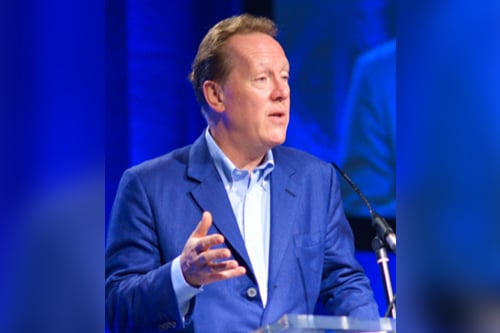

What is the relationship between insurance and academia? Data has long been considered the most valuable asset of the insurance industry but the COVID-19 pandemic has brought with it an overload of information and misinformation and, in doing so, has shone a spotlight on the need for quality, relevant knowledge founded on a scientific and academic bedrock. A recent report by The Lighthill Risk Network revealed that better links between insurance and academia are critical to further understanding systemic risk.
Speaking with Insurance Business, the CEO of Lighthill, Dickie Whitaker (pictured) highlighted how the report ‘Improving Impact – Building better links between insurance and academia’ ties in with his role in the space of risk, academia and industry collaboration. His responsibilities at Lighthill essentially boil down to working out what the insurance industry’s problems are, working out the opportunities in academia and putting them together.
Looking at the problems facing the insurance industry from a risk perspective, Whitaker said the question that businesses and individuals need to ask is, “how are we going to better understand risk”?
“There are a whole bunch of what you might call emerging risks,” he said. “But, essentially, the reason for this report is that we are always trying to work out… where could science better inform our decision-making ability? And we’re only going to do that by reaching deeper and deeper into academia, and forging links with academia and the science space that are going to be the fertile source of information that we need to better inform ourselves and, thus, to make better decisions.”
Looking at trying to resolve the enormous challenge that is climate change, for instance, relies on working together to find a solution.
Read more: Making climate change insurable
“The good news is that the insurance industry can play an enormous role as a positive lever on behaviour in society,” said Whitaker. “So, if we have a situation where the insurance industry, with significant benefit from academia and the science base, can understand more about climate change then it can structure models and then policies which create a positive feedback loop. Then, when households or businesses do the right thing by supporting climate adaptation and mitigation, the insurance industry can recognise this and reward it with a better premium.”
This collaboration goes both ways as some academics do not fully understand the range of challenges involved in the sector.
“We want to bridge that gap that exists right now between academia and insurance so that we get a greater and more useful feed of data information from academia into insurance issues,” he said. “The insurance industry insures almost every problem that is faced by society. And I think just knowing that is useful in itself, because we need to work more closely together to try and deal with that. And so, there should be a greater dialogue with the insurance industry about how to manage [those risks].”
Blue sky research is fine but ultimately politicians and society generally want to see productive output from academia which saves lives or create a more efficient businesses which spawn new jobs. That’s part of its overall purpose.
“The pandemic might be too simplistic an example, but, ultimately, if we had had more information about the pandemic and models that we could use better, we’d all have benefited,” he said. “The government would have benefited from being able to understand more and the insurance industry might have been able to offer more coverage.
“The reason why, generally speaking, pandemics and war and a few other risks tend to be excluded is that you can’t insure something that you don’t understand well enough, and that doesn’t essentially have some sort of predictability. And if something is completely unpredictable then it’s almost uninsurable. So, what we’re really trying to do here is move things away from being unpredictable to becoming more predictable. And that’s good for society because it gives [us all] more choice.”
